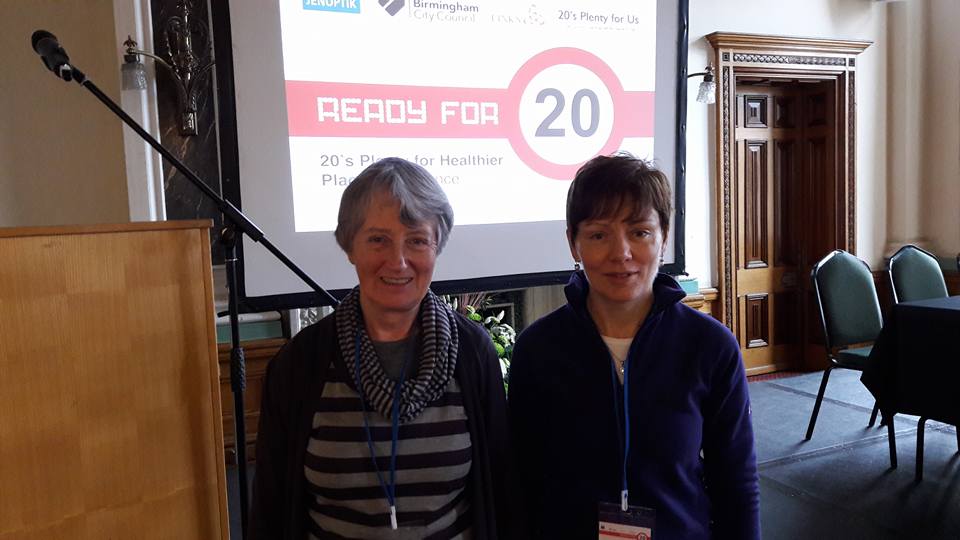
Report from 20's Plenty Conference in Birmingham
Slower speeds save lives, save lifestyles and save money.
That was the message from the 20’s Plenty Conference that took place on the 8th March 2017 in Birmingham. Mairead Forsythe and Muireann O’Dea attended the conference on behalf of the Love 30 Campaign and Cyclist.ie.
Dublin was well represented as Roy O’Connor from Dublin City Council presented the plans to expand the 30kmh zones in the city over the next few months. On the 1st April 2017 the speed limit will be set to 30km/h on nearly all roads within the canals. In July 2017 further residential areas outside of the canals will be added. The council have done baseline measurements of air, noise and speeds so it will be possible to measure the benefits after the new limits are introduced. They also measured journey times for cars travelling at 50km/h and 30km/h across the canal area and found that the lower speed limit adds less than a minute to journeys of 2.5km.
Widespread 20mp/h speed limits have been introduced in Calderdale over a three year period from 2015 to 2017. While the average reduction in vehicle speeds has only been 2.2 miles/hour there has been a reduction of 22% in road traffic collisions. Paul Butcher, the director of Public Health at Calderdale Council, estimates the savings so far from the reduction in injuries at £450,000 and he expects the full costs of the speed limits programme to be recouped within 5 years.
The hosts, Birmingham City Council, were keen to showcase their programmes to make the roads safer and to encourage active travel. The council were awarded £58 million from the Department for Transport to implement their Cycle Revolution programme to promote cycling. They have a team of 9 that run cycling events throughout the city for people of all ages and abilities. Some of the innovative ideas were to give away 3,500 bicycles to people who can’t afford a bicycle and to introduce a Brompton bike hire scheme.
The council have also introduced a scheme whereby motorists caught speeding outside a school are given the option of paying the speeding fine or appearing before a Children’s Court where they must explain their behaviour. You can get an idea of how it works from these Children’s Court videos. Rod King MBE, the founder of 20’s Plenty for Us, spoke of the difficulties faced by residents in The overall message from the conference was that lower speed limits are now becoming the norm throughout cities in the UK, and that they are a cost effective way to reduce injuries and promote active travel.
